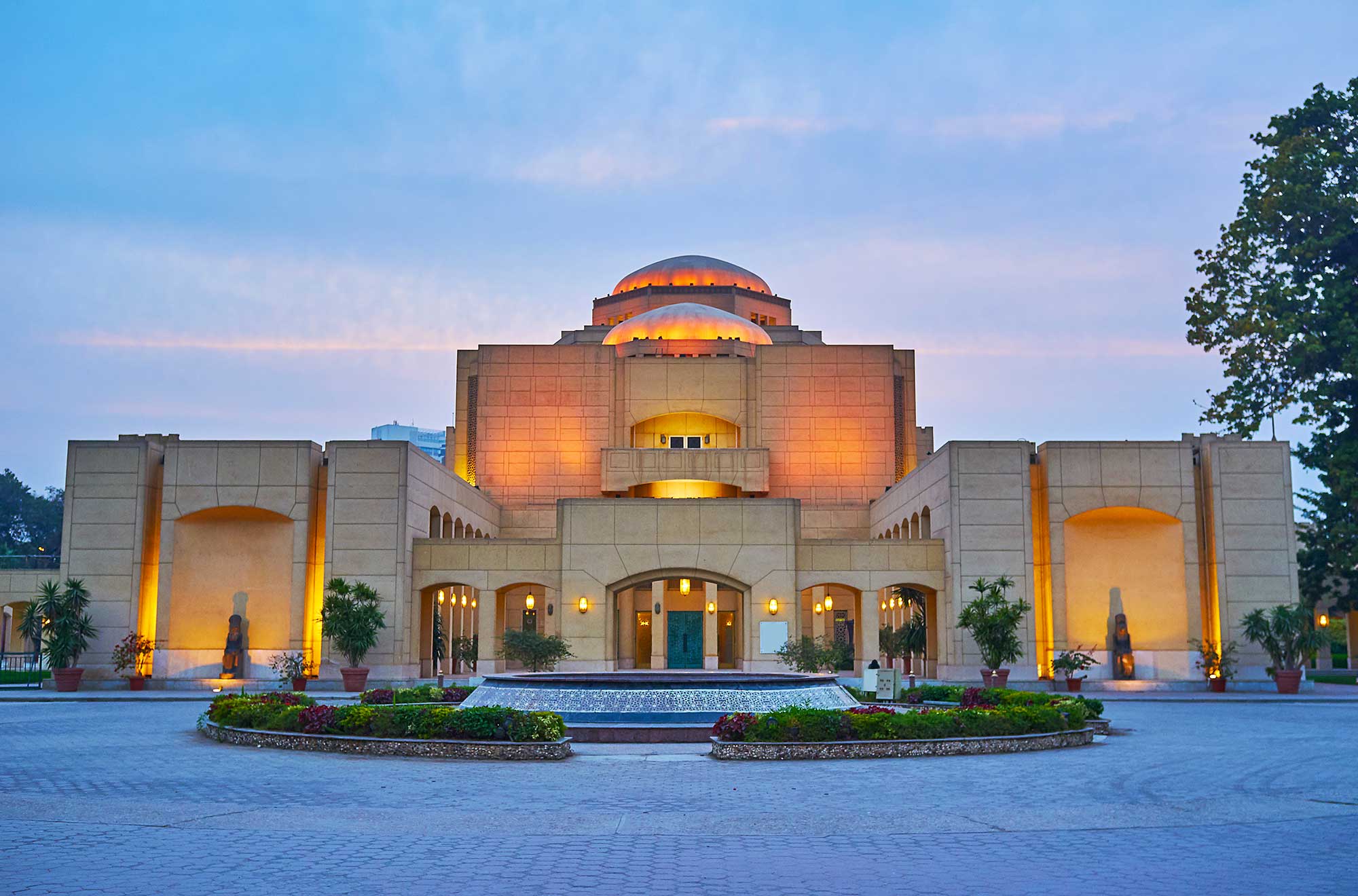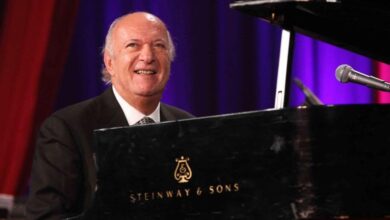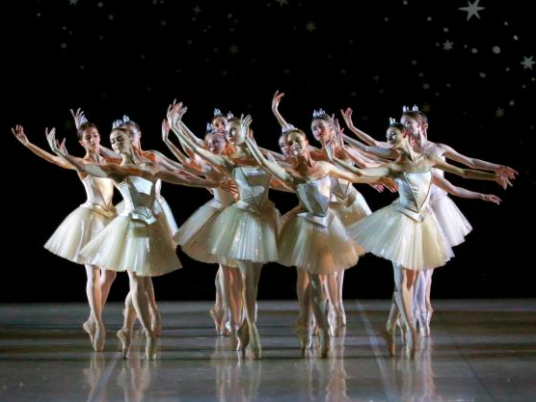Hala Imam graduated with a bachelor's degree in Costume and Set Design. She went on to study modern dance at the Cairo Opera House's Modern Dance School, becoming then a member of the Modern Dance Company there. She served as director of the school for over six years and has participated in over 35 performances throughout her career.
In Part I of a two-part interview, Al-Masry Al-Youm spoke to Imam about her own education, what it means to be a dancer, and how she came to be the Director of the Modern Dance School.
Al-Masry Al-Youm: How did you come to the decision you want to be a dancer? What is the history behind it?
Hala Imam: As a young girl I wanted to be a dancer, not as a hobby but as a career. I was born in the 70s and by the time I grew up there was only the Ballet Institute. My parents completely refused to let me join the Institute. The Institute was a great until the 60s (when it was run by the Russians) but later, during Nasserite era all this went down hill. They stopped teaching anything to develop the mind, nothing about literature, dance history… Those who graduate now are just beautiful bodies; they can move, they have interesting lines, but I don't think that they themselves are very much aware of how their bodies work or what muscles they use or the logic behind the movement…
So my parents refused to let me attend this kind of institution, and my mother told me, “Enroll in a regular school, learn a thing or two and keep dancing on the side.” But at this time there weren't any centers that were teaching dancing as there are now. The only way I could move was by doing sports–tennis, swimming, running track.
By the time I was in middle school, you had people like Samia Allouba starting to make dance classes available, and I did take classes, but I was not able to receive the primary physical training for a dancer. That did not stop me though!
I tried to join in whatever dance projects were available back then, Karim El-Tunsie for example. After I finished high school I realized I had 18 years left–before I can no longer dance professionally–to learn dance, and I wanted to join a dance school, but there was still none.
I ended up joining the fine arts school. I graduated and started working in a furniture design company. I was 26 when I read the ad in the newspaper about Walid Aouni's dance school. This was the start.
Al-Masry: How was your experience in the school?
Imam: There were many problems from the very start. I didn't feel that the ads were great. I came across them by chance as I was booking tickets for an opera. I was surprised there were no ads in colleges or universities; there were only ads at the Cairo Opera House.
I decided to enrol, but needed to keep my job to support myself, so I left work an hour early (which was deducted from my salary) to get to school on time.
When I first joined the school, our class had the best attention. There was support from the ministry, we worked five hours a day, five days a week. We worked really hard. We had fantastic teachers–Mohammed Abou-el-Kheir teaching solfege, Walid Aouni teaching master classes, Magdi Saber teaching classical ballet, and Nehad Selaha teaching drama and history of theater.
I have to admit, the first year was more than incredible.
Al-Masry: It sounds like a rigorous and rewarding experience. Did you feel that you were developing as a dancer?
Imam: On one level yes, but my body was not helping. I would see the movements and understand how to execute them, but the lexicon of movement I had was strictly from sports–swimming, aerobics. To ask someone with a body like that to do an arabesque, to raise your leg and stand on one foot, that requires using certain muscles in certain ways that are not there!
So you start receiving so much information because they have a syllabus to finish, so your muscles do not have enough time to develop and to keep with the system, especially since you are not usually prepared, coming to school from work, sitting all day at your desk, you are not warmed up or physically ready. So I felt I was improving a lot in the way I was thinking about dance, advancing in the way I was relating to my body, but the practical side of dancing, I didn't feel that was happening.
Al-Masry: How did you overcome these limitations as a dancer and performer?
Imam: I decided to work on it myself. During summer break, when school was out, I would train further and work on my technique, so by the time I joined school again in third year I was able to work in Walid Aouni's dance company with the “anonymous” corps de ballet.
I started taking performing seriously and looking forward to being on stage, even just for one minute. It meant a lot to me, to be able to perform on stage and dance. It meant the world to me that I was on the same stage as other established dancers like Karima Bedeir and Mohamed Shafik–choreographers who danced abroad in Europe and other places. It was an accomplishment for me to be dancing with individuals of this caliber.
This pushed me further and I started excusing myself from work to attend the ballet classes at the dance company. When you start working with people who are more advanced than you are, this pushes you to improve yourself even further. It also helps when you see the movements executed perfectly by professional dancers' bodies, you come to understand the lines better and the movement better.
Al-Masry: You spoke about problems in the school. How and why did that happen?
Imam: When we finished the first year and moved to the second year, this is when problems started.
Because when the Ministry of Culture (MoC) supported it, it supported several projects of the same kind–meaning it decided to support cultural centers for youth that could not join specialized schools or institutes, so they could receive the training they need.
Farouk Hosni (former Minister of Culture) was behind the idea, and assigned specific people to these centers. Aouni was responsible for dance, Nassier Shama for music and Khaled Galel for theater.
The problem arose when the school accepted the second batch of students. The MoC informed Aouni that there would be more than one dance hall in the school, so he would be able to accept new students. You know for actors you need one year, but to work with dancers, you need at least four years. I mean in the ballet institute, you start when you are nine years old.
But the MoC did not build more than one rehearsing space, so there was only one for all the students. I cannot begin to describe the problems that arose because of that. It allocated funds for 18 classes distributed between the different school years, so there were three classes and then three classes, each class an hour and a half.
It did not start constructing a new annex for the new students or provide a second dance hall. So you had two batches of students, one dance hall and 18 classes in total for all the students. And in the school charter, the school must hold auditions and accept new students every year.
The school had to divide the number of classes between the two years, which meant that all the theoretical subjects had to be removed to save time and space for the more demanding physical training. The students were disgruntled because they would start warming up and then realize that there was a break right in the middle for the first year students, as classes alternated.
Cancelling theoretical subjects resulted in students no longer being aware of the context of what they were studying and why. When did modern dance develop and why? Why is ballet so stylized? And so on. What made things worse was the acceptance of a new batch of students when I was graduating, in third year.
You now had one space, and 18 classes distributed among three batches of students. Instead of giving specific content depending on competence and acquisition level, the school decided to combine classes between the second and the third year without taking into consideration the physical and mental degrees of competence. The overall quality of students was deteriorating. There was a big number of students and a higher incidence of injuries.
Also, the idea was that you graduate dancers who can start performing and working with other dance companies and what not, but now you had students enrolling who were motivated by fitness only. This definitely damaged the reputation and credibility of an institution established to graduate dancers and future choreographers.
But in reality you were graduating mediocre students which meant a lot of the teachers and instructors decide to leave.
Al-Masry: How did you get involved in running the school and along the way become its de facto director?
Imam: During third year when I was graduating I decided that I wanted to help and stop the school from deteriorating further, particularly because in third year before Abou Al-Khier left the school, we really were involved and engaged. We used to go to performances and write critiques; we used to sit with our teachers and instructors and discuss how we can better develop ourselves and so on.
Although Abou Al-Kheir's official capacity was administrative, his actual role was also artistic; he served as an Artistic Director as well the Senior Administrator of the school, despite the fact that official artistic director was Walid Aouni. But Aouni was faced with increasing responsibilities (the opening of The Cairo International Film Festival, the 6th of October Victory Celebration) in addition to running his own dance company and managing the school.
When Al-Kheir left the school I decided to help out, voluntarily. I started liaising between the teachers and the students, as when a class gets cancelled and so on. When I graduated, Aouni asked me if I would run the school.
You would laugh if I told you that while Aouni asked me to run the school, the Endowment for Cultural Development refused my appointment. They thought I was “overqualified” to be a senior administrator and that, because the school already has an artistic director, there was no point in hiring another one. But I felt very strongly about the cause of the school and I felt that it would only continue to deteriorate if people like us did not step in and take charge, so I decided to tell Aouni that I would run the school for free.
I became the senior administrator for the school for five years without ever getting paid. I was responsible for the payroll, monitoring attendance, setting the schedule of the different school years, holding auditions, coordinating school performances–I basically did everything.
I cannot say that I regretted doing this. I was doing something that I love.
I was crazy about the students, I was so careful with the school equipment and premise, and I had a lot of liberty in setting the curriculum. I got a lot of experience in what it means to set a schedule for a dance school, which classes should come first? Do students benefit more if the hip hop classes come first or the classical?
I started to understand what it means to work in the government, what red tape is and what it means to be framed within particular bureaucratic model of operation. After five years I started realizing how unjust the system is for those who really want to follow their passion and their calling.



